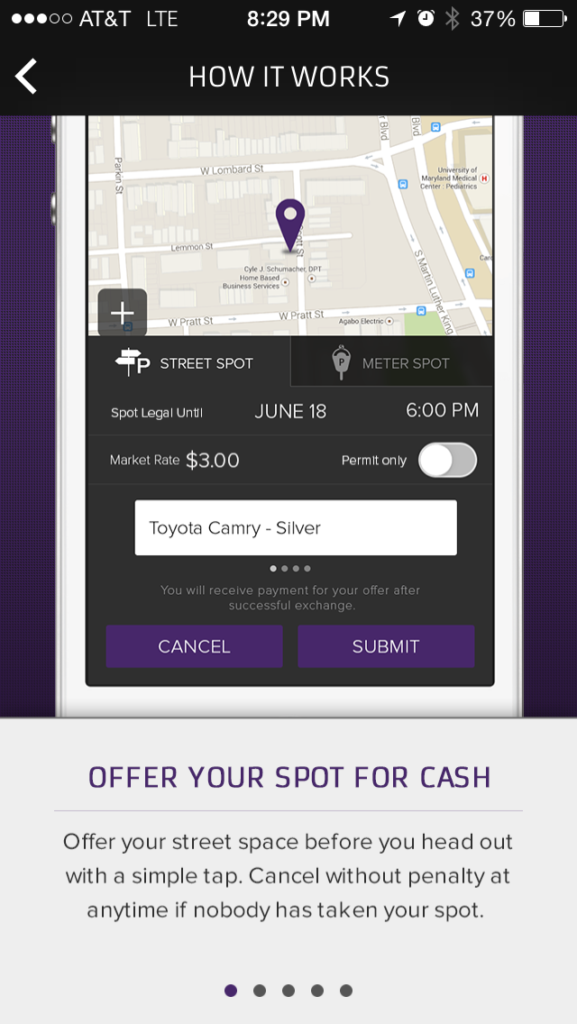By Rowan Walrath, City Pulse Editor
The Boston City Council has unanimously passed an ordinance effectively banning parking apps like Haystack, which allows users to alert nearby drivers that they are leaving a parking space and sell it to them for a fee.
According to the ordinance, introduced by Councillor Frank Baker, Bostonians may not sell, lease or reserve public parking spots for private profit at the threat of a $250 fine.
The council held a hearing to discuss the Baltimore-based app’s legality 12 days after its service went live. According to Haystack CEO Eric Meyer, Haystack’s representatives did not receive an invitation to attend the hearing until less than 36 hours before it began.
“At this hearing, two people and five councillors asked me how Haystack worked and whatnot,” Meyer said. “It’s a technology that they don’t even fully understand, that they had no time to conduct any legitimate study on.”
In the past, Boston has prided itself on its status as a hub of innovation. Services like Hubway and Zipcar, for example, have thrived in the city.
“Now, for the last three years, we’ve had the Hubway bike program,” Councillor Matt O’Malley said. “That’s been wildly successful.”
According to O’Malley, Hubway provides an example of a beneficial addition to Boston’s enterpreneurial community.
“Boston celebrates good innovation,” O’Malley said. However, Haystack does not qualify as such, he said, because it exploits the system enough to threaten Boston’s authority. Innovations are favorable, but they must remain within an unspoken set of rules.
“It encourages and takes advantage of the innovation economy,” O’Malley said. “I think [innovations] are valuable. My contention with Haystack is taking public property and allowing someone to benefit monetarily from a private transaction.”
At the hearing, Haystack and city officials disagreed as to whether the app would benefit or hurt the city’s current public parking situation.
“Boston’s parking scene is archaic, and it is outdated,” Meyer said. “It’s mismanaged. It’s not just Boston that has this issue. Dozens of cities across the country have this problem.”
Haystack, he contended, would have provided a solution—but it was killed before it could prove its potential. The app has already been launched successfully in Baltimore, where it originated. According to Meyer, it has yet to prove itself a problem there.
“What we simply said all along is that you should measure the impact on the city and on neighbors,” Meyer said. After city officials had conducted rigorous research, any necessary regulatory action could then be taken based on evidence rather than on hypothetical situations.
In the wake of the ordinance, City Council is faced with the task of creating alternative solutions to Boston’s parking problem.
“Parking is a major issue in the city’s residential neighborhoods and business districts,” Councillor Michael Flaherty said. “I support the use of technology and innovation to help alleviate this problem.”
O’Malley suggested working on a larger scale in terms of collaboration with transportation and government officials. He champions keeping city-owned property governed by city authorities and organizations rather than placed in the hands of residents.
“I think it’s part of a larger conversation we need to be having–more with the state and governor–to increase and upgrade public transit, the MBTA,” O’Malley said. “If someone wants to rent out their driveway on their private property, then that’s fine. The issue is that this is public property. That’s not fair.”
By that same argument, though, Boston’s residents comprise the public. And according to Meyer, those people should have the right to take public property into their own hands.
“The fact of the matter is, it’s a public parking spot,” Meyer said. “If it’s a more efficient way to make street parking work, that’s a good thing. It’s a shame that Boston, a city known for its great innovation, is going backwards with this new idea.”
Photo by Rowan Walrath








![A demonstrator hoists a sign above their head that reads, "We [heart] our international students." Among the posters were some listing international scientists, while other protesters held American flags.](https://huntnewsnu.com/wp-content/uploads/2025/06/image12-1200x800.jpg)






